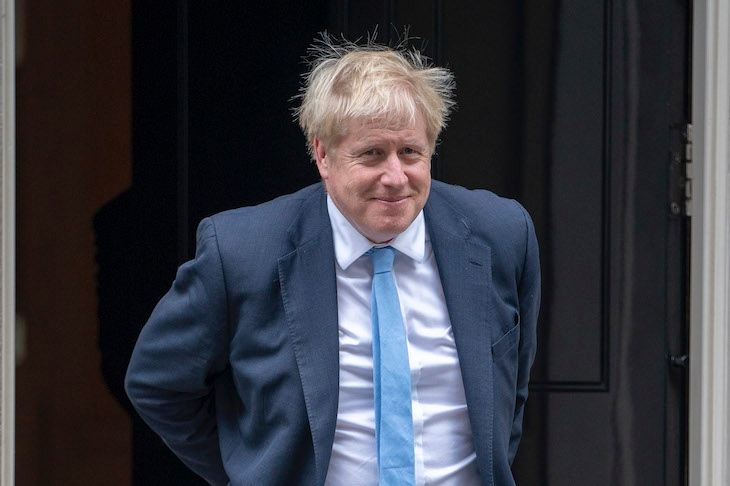The stronger the prospect of a general election, the easier it will be for Boris Johnson to get through the week that Britain was supposed to be leaving the European Union. He had said he would rather ‘be dead in a ditch’ than miss the deadline, but is now taking a two-pronged approach to distracting everyone from the fact that Thursday will come and go, and Brexit will still not have happened.
The first part of this plan is to make sure that it is clear parliament is to blame for missing the 31 October deadline, rather than the Prime Minister who placed so much emphasis on it. So the repeated message from Johnson and his allies is that ‘this parliament is broken’ and that the ‘country is being held hostage’. At today’s lobby briefing, the Prime Minister’s spokesman told journalists that Johnson’s ‘view has not changed: parliament should not have put the UK in this position and we should be leaving on 31 October’. He refused to engage with questions about whether the Prime Minister should apologise for missing the deadline, instead saying:
‘What the Prime Minister has done, despite being told it was impossible, was secure a deal and set out a timetable which would have allowed us to deliver that deal on 31 October. Parliament has stood in the way of being able to deliver Brexit.’
So that’s the blame game continuing to run its course. The second tactic is to get everyone talking about an election, rather than about the Brexit deadline. This is working extremely well at the moment, not least because the Labour party is in so much turmoil that it is making the whole question of whether there will be a December election much trickier to answer – and therefore more interesting. This is ideal for the Tories.
The message from No. 10 this week is that it’s ‘crunch time’, not just for Labour, but also for those wavering MPs who backed the Withdrawal Agreement Bill at Second Reading but not the programme motion for that legislation. The message to those MPs will be, in the words of one No. 10 source, ‘there’s an election coming, what terms do you want it on?’ Do MPs want a Brexit-themed election because Britain hasn’t yet left (the Lib Dem/SNP plan) or a post-Brexit election where the parties have a slim chance of talking about other issues such as public spending?
It’s not just the turmoil within the Labour party that’s making this strategy a little more successful. The furious, public, row in the People’s Vote campaign isn’t just undermining the second referendum cause but also the wider Remain side of the argument. Organisations don’t tend to descend into these internecine rivalries unless their key players suspect they have already lost the argument. Having such a noisy meltdown involving staff walking out of meetings, and others being threatened with security for staying in the building when they’ve apparently been sacked is also not the smartest way to make the case that a second referendum wouldn’t exacerbate the divisions in the country over Brexit.
With the Remain side so busy fighting, it’s much easier to switch the conversation from Brexit to an election. There are many reasons why this current situation is down to errors in planning and people-management by Johnson, but his opponents must accept that they have made it much easier for him to get away with his mistakes.







Comments